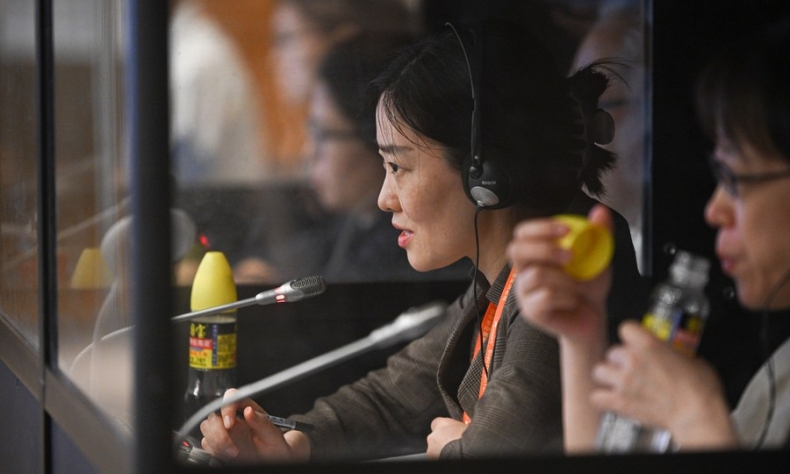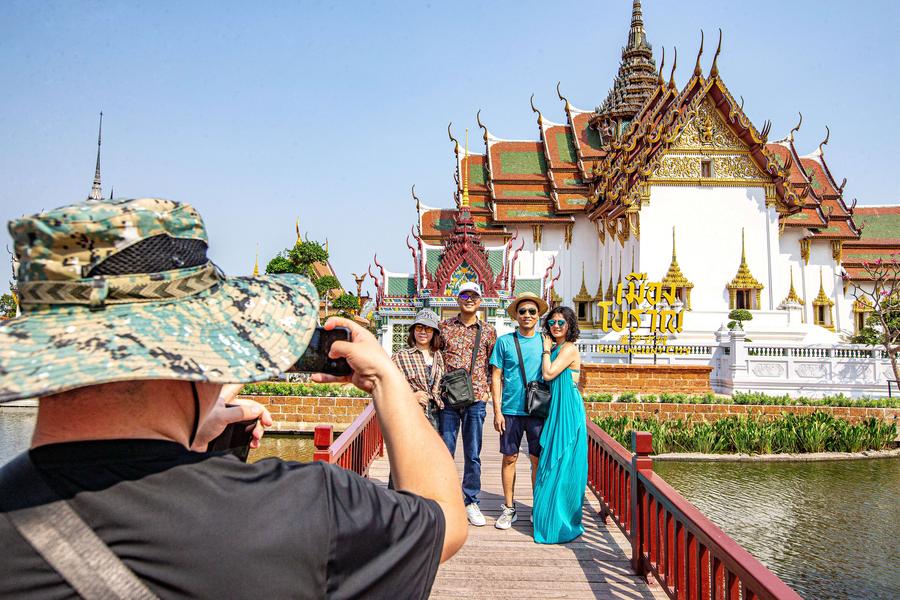Between and Beyond the Lines

While China tries to make its discourse more accessible to international audiences, observers in the West should meet China halfway by ditching any preconceptions they may have to be better listeners, more open to the Chinese way of thinking and expressing ideas.
‘A powerful country.” “A diplomatic iron army.” “A new form of human civilization.” These are the word-for-word translations of some of the buzzwords in the current Chinese political discourse.
For some, the concepts are all negative, with connotations ranging from conquering the world to committing a cultural genocide. For others, however, they conceptualize pursuits that benefit China and the world at large. Should translators help bridge this gap by looking for alternative ways to express these ideas?
There has long been a consensus among translators that they need to transcend the literal meaning of a Chinese phrase to convey the underlying message. As most words have multiple meanings, one needs to read between the lines to determine the intended meaning before coming up with an accurate translation. Additionally, Chinese figures of speech, such as metaphors, often do not readily translate. Translators always walk a fine line between faithfulness and readability.
Take the word wenming for instance. Often taken as an equivalent of “civilization” in English, it also has several other meanings, including good manners. In Chinese political parlance, it encompasses all aspects of human progress, while referencing the time-honored Chinese civilization. To make the concept easier to understand for international audiences, it has been translated as “progress” or “advancement” in many cases. For example, President Xi Jinping envisions a new model for human advancement (literally, a new form of human civilization) that calls for coordinated progress on economic, political, cultural and ethical, social and ecological fronts (literally, material, political, spiritual, social and ecological civilizations). The plural form is used in the Global Civilizations Initiative, which was proposed by President Xi last year, to avoid negative interpretations (i.e. neocolonialism) and highlight respect for the diversity of civilizations that the initiative promotes.

Western media, however, sometimes fail to reflect these nuances. The so-called “diplomatic iron army” is a Reuters translation of a term used by President Xi in a speech made in front of Chinese diplomatic envoys in December 2023. Based on its literal translation, the news agency argued the phrase revived “the abrasive Wolf Warrior rhetoric propagated by some diplomats as a sign of China’s increasingly assertive foreign policy.” Although, in English, it may conjure up images of an intimidating force, an “iron army” is, in fact, a Chinese metaphor for a well-disciplined, capable team. The president used the metaphor presumably to drive home his idea in a more illustrative and emphatic way. Chances are slim that he would extol “Wolf Warrior diplomacy,” a misleading and derogatory label imposed by Western critics.
Many argue Western media intentionally misinterpret China’s messages to fit their agenda. A long-held assumption in some quarters is that as China becomes stronger, it will pose a challenge to the West. China’s vows to turn itself into a powerful country are therefore seen to justify countermeasures. But when China talks about strength, it means to make the most of its potential to better meet the needs and expectations of its people and at the same time contribute to the well-being of the world. This is evidenced by its reiterated commitment to mutually beneficial outcomes.
There is reason to believe preconceptions about China do exist in the West. Even though the prevailing Chinese discourse is in favor of multipolarity and cooperation, specific concepts continue to be deconstructed and discredited.
Aware of cultural sensitivities and the need to deliver messages in a targeted way, translators can play a role in narrowing the cognitive divide. They may opt to delve into and bring to light the complexities of a concept instead of putting it bluntly. They can add background information to give readers perspective. They can also relay comments and queries to policymakers to help them craft a more international discourse.
Work on the part of communicators, however, is only part of the story. Efforts are needed on both sides. While China tries to make its discourse more accessible to international audiences, observers in the West should meet China halfway by ditching any preconceptions they may have to be better listeners, more open to the Chinese way of thinking and expressing ideas.
 Facebook
Facebook
 Twitter
Twitter
 Linkedin
Linkedin
 Google +
Google +










